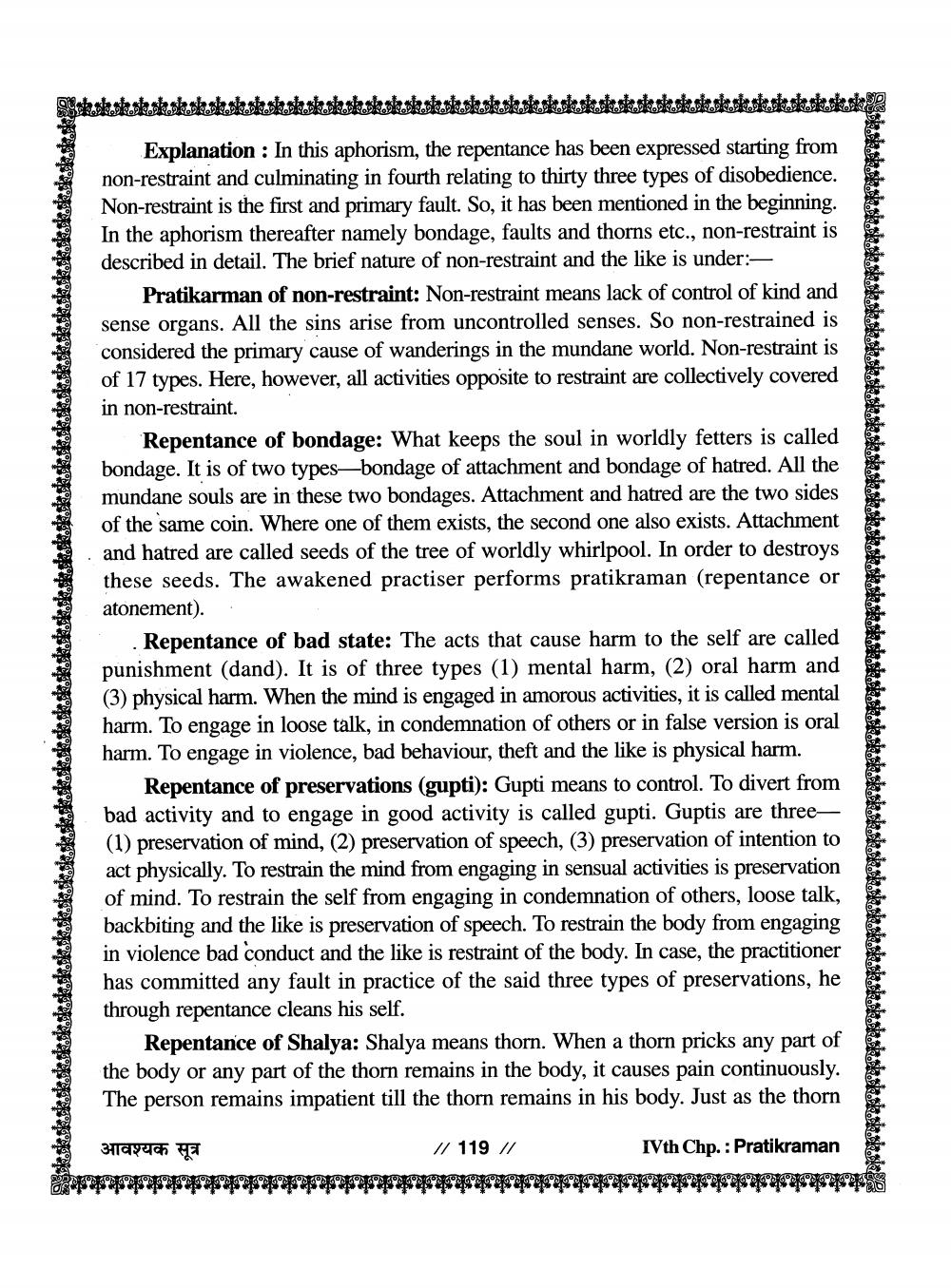________________
Explanation: In this aphorism, the repentance has been expressed starting from non-restraint and culminating in fourth relating to thirty three types of disobedience. Non-restraint is the first and primary fault. So, it has been mentioned in the beginning. In the aphorism thereafter namely bondage, faults and thorns etc., non-restraint is described in detail. The brief nature of non-restraint and the like is under:
Pratikarman of non-restraint: Non-restraint means lack of control of kind and sense organs. All the sins arise from uncontrolled senses. So non-restrained is considered the primary cause of wanderings in the mundane world. Non-restraint is of 17 types. Here, however, all activities opposite to restraint are collectively covered in non-restraint.
Repentance of bondage: What keeps the soul in worldly fetters is called bondage. It is of two types-bondage of attachment and bondage of hatred. All the mundane souls are in these two bondages. Attachment and hatred are the two sides of the same coin. Where one of them exists, the second one also exists. Attachment and hatred are called seeds of the tree of worldly whirlpool. In order to destroys these seeds. The awakened practiser performs pratikraman (repentance or atonement).
Repentance of bad state: The acts that cause harm to the self are called punishment (dand). It is of three types (1) mental harm, (2) oral harm and (3) physical harm. When the mind is engaged in amorous activities, it is called mental harm. To engage in loose talk, in condemnation of others or in false version is oral harm. To engage in violence, bad behaviour, theft and the like is physical harm.
Repentance of preservations (gupti): Gupti means to control. To divert from bad activity and to engage in good activity is called gupti. Guptis are three(1) preservation of mind, (2) preservation of speech, (3) preservation of intention to act physically. To restrain the mind from engaging in sensual activities is preservation of mind. To restrain the self from engaging in condemnation of others, loose talk, backbiting and the like is preservation of speech. To restrain the body from engaging in violence bad conduct and the like is restraint of the body. In case, the practitioner has committed any fault in practice of the said three types of preservations, he through repentance cleans his self.
Repentance of Shalya: Shalya means thorn. When a thorn pricks any part of the body or any part of the thorn remains in the body, it causes pain continuously. The person remains impatient till the thorn remains in his body. Just as the thorn
IVth Chp.: Pratikraman
आवश्यक सूत्र
// 119 //




